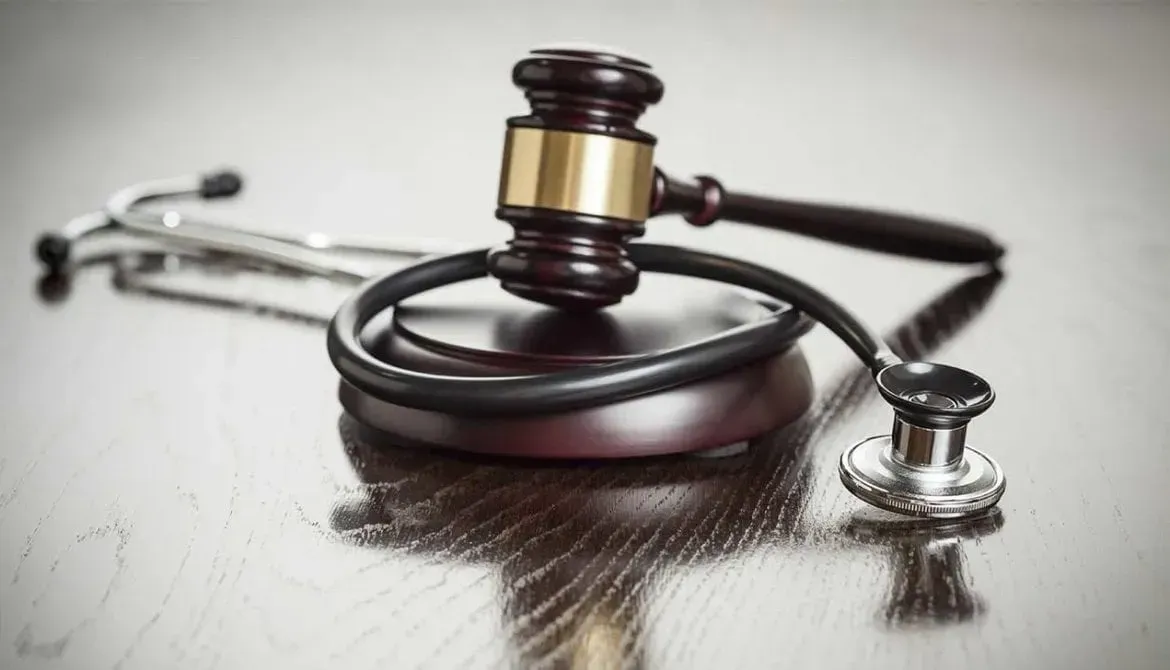BLOG

Damages You Can Recover in a Wrongful Death Claim in Cook County
Introduction
Losing a loved one because of someone else’s negligence or wrongful act is devastating. In addition to emotional pain and grief, families often face serious financial burdens. A wrongful death claim exists to allow survivors to recover compensation for the losses caused by that tragic death.
In Cook County — and throughout Illinois — wrongful death lawsuits allow certain survivors to recover both economic and non-economic damages. This article explains:
Which damages are recoverable under Illinois law
How the types of damages differ
Recent changes to Illinois wrongful death statutes
Key limitations, fault rules, and procedural steps
By the end, you’ll understand the categories of compensation that may be available and how to protect your rights.
Understanding Wrongful Death Claims in Illinois
Before examining what damages can be recovered, it helps to understand how wrongful death law works in Illinois.
The Illinois Wrongful Death Act allows the surviving spouse and next of kin to bring a lawsuit when someone dies due to another person’s wrongful act, neglect, or default. The purpose is to compensate survivors for the financial and emotional harm caused by that loss.
Illinois also recognizes a separate claim under the Survival Act, which allows the estate to recover for losses the deceased suffered before death — such as medical bills or pain and suffering. These two types of claims often proceed together.
In Cook County, wrongful death claims must comply with both state law and local court rules. Courts have broad discretion to assess damages and distribute compensation among surviving family members.
Types of Damages You Can Recover
Illinois law allows multiple forms of compensation in a wrongful death claim. These generally fall into three main categories: economic damages, non-economic damages, and, in some cases, punitive damages.
Economic (Pecuniary) Damages
Economic damages compensate survivors for tangible, measurable financial losses. They’re typically proven with records, expert analysis, and testimony.
Examples include:
Loss of the deceased’s financial support, such as wages, benefits, and retirement contributions
Loss of inheritance or future financial contributions
The value of household or personal services the deceased would have provided, such as childcare or home maintenance
Medical, hospital, and funeral expenses related to the death
Costs associated with estate administration and burial
Courts consider what the deceased would have contributed had they lived, often using economic experts to project earnings and service value over time.
Non-Economic (Intangible) Damages
Non-economic damages compensate for the emotional and relational losses survivors experience after a wrongful death. While harder to measure, these are often the most meaningful parts of recovery.
Examples include:
Grief, sorrow, and emotional distress suffered by family members
Loss of companionship, affection, and love (often called “loss of consortium”)
Loss of parental guidance and support for children
Loss of society, comfort, and moral guidance
Illinois does not cap non-economic damages in wrongful death cases, meaning the court or jury determines what is fair based on the evidence.
Punitive Damages
Punitive damages are meant to punish especially reckless or intentional conduct. As of 2023, Illinois law allows punitive damages in wrongful death and survival actions for the first time in many decades.
Punitive damages are not available in every case. They are typically limited to situations involving gross negligence, fraud, or willful and wanton misconduct. They also cannot be recovered against certain parties — such as medical professionals or government entities — under statutory exceptions.
Factors That Can Affect Damage Awards
Before pursuing a wrongful death claim, it’s important to understand that not all cases result in the same types or amounts of compensation. The court will consider several key factors when assessing damages.
Comparative Fault
Illinois follows a modified comparative negligence system. If the deceased was partly at fault for the accident, the total compensation may be reduced by their percentage of fault. If the deceased was more than 50 percent responsible, the claim may be barred entirely.
Relationship to the Deceased
Courts distribute compensation among eligible survivors — typically the spouse, children, or next of kin — based on the closeness of the relationship and the level of dependency. Each family member’s emotional and financial losses are weighed separately.
Evidence and Expert Testimony
Strong documentation is essential. Economic experts may project lost income and benefits, while psychologists or grief counselors can help illustrate non-economic losses. Medical and accident reconstruction experts often provide key evidence on causation and liability.
Steps for Pursuing a Wrongful Death Claim in Cook County
Navigating a wrongful death claim involves several important steps. Understanding the process can help you and your attorney build a strong case.
Step 1: File Within the Statute of Limitations
In most cases, you must file a wrongful death lawsuit within two years of the date of death. Certain situations — such as intentional acts or criminal conduct — may extend this timeframe slightly, but it’s best to act quickly.
Step 2: Identify Eligible Parties
A wrongful death claim must be filed by the personal representative of the deceased’s estate, on behalf of eligible survivors. Typically, the surviving spouse, children, or next of kin are the beneficiaries of any award.
Step 3: Gather and Preserve Evidence
Document every aspect of your loss. This includes:
Financial and employment records
Medical and funeral expenses
Proof of dependency or household services
Witness statements and police reports
Preserving physical evidence and securing expert evaluations early can strengthen your claim.
Step 4: Evaluate Damages and File the Claim
Once you have the necessary information, your attorney will calculate both economic and non-economic damages, identify potential defendants, and file a formal complaint in the Cook County Circuit Court.
Step 5: Negotiate or Proceed to Trial
Many wrongful death cases settle through negotiation or mediation. However, if the parties cannot reach a fair agreement, your case will proceed to trial, where a jury will decide damages and distribution among survivors.
Step 6: Distribution of Compensation
When a settlement or verdict is reached, the court will distribute the compensation among the surviving spouse and next of kin based on fairness and dependency. For minors, funds may be placed in trust or managed under court supervision.
Frequently Asked Questions
Who can file a wrongful death claim in Cook County?
The personal representative of the deceased’s estate must file the claim, but compensation is awarded to the spouse, children, or next of kin.
Are there limits on damages in Illinois wrongful death cases?
No. Illinois does not impose caps on compensatory damages for wrongful death. The amount is based on the evidence presented.
Can punitive damages be awarded?
Yes, since 2023, punitive damages can be awarded in many wrongful death and survival actions, except in certain professional negligence or government cases.
What if the deceased was partly responsible?
If the deceased was less than 50 percent at fault, the damages are reduced by that percentage. If more than 50 percent at fault, recovery is barred.
How long does a wrongful death case take?
The timeline varies. Simple cases may settle within a year, while complex cases involving multiple parties or expert testimony can take several years to resolve.
Conclusion
A wrongful death claim cannot undo the loss of a loved one, but it can help families in Cook County find financial stability and justice. Illinois law allows compensation for both tangible and emotional losses — and, in some cases, punitive damages when conduct is especially egregious.
Every case is unique, and the process can be legally and emotionally demanding. Working with an experienced personal injury lawyer can help ensure your case is handled with compassion and skill, protecting your rights and maximizing recovery for your family.
COMING SOON

The Law Offices of John A. Culver offers over 3 decades of legal experience defending and prosecuting civil actions on behalf of a variety of clients, including numerous jury trials.

